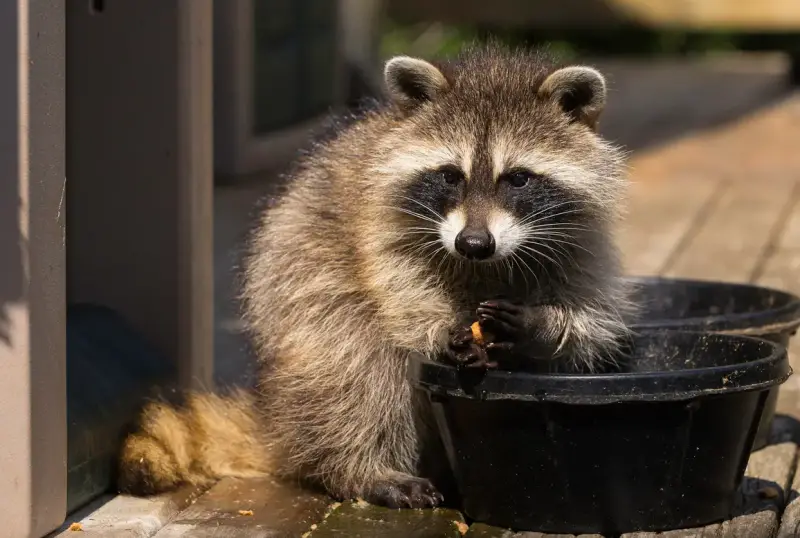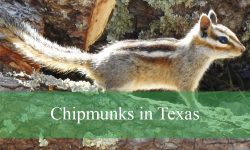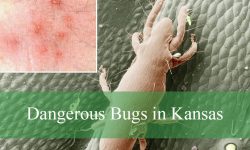Raccoons are fascinating creatures known for their dexterous paws, curious nature, and adaptable diet. Whether you’ve spotted one rummaging through your trash can or seen it in the wild, you may wonder, “What do raccoons eat?” Understanding their eating habits is essential not only for appreciating these creatures but also for managing interactions with them, especially in urban areas.
Raccoons are omnivores, meaning they eat both plant and animal matter. However, their diet can vary significantly depending on their habitat, the season, and what food sources are available.
In this comprehensive guide, we will explore the diverse and opportunistic eating habits of raccoons. From their preference for certain foods to their ability to adapt to different environments, this article will cover everything you need to know about what raccoons eat.
Understanding Raccoon Behavior and Diet

Before delving into what raccoons eat, it’s important to understand their behavior. Raccoons are highly opportunistic feeders, meaning they’ll eat almost anything they come across. Their dexterous front paws and ability to manipulate objects allow them to search for food efficiently. Raccoons are also nocturnal, often hunting at night, and they tend to scavenge from a variety of sources, including human waste, small animals, and plants.
Why Are Raccoons So Adaptable?
Raccoons are one of the most adaptable species in the animal kingdom, capable of thriving in both rural and urban environments. This adaptability extends to their diet. In rural areas, they typically forage in the wild, hunting small animals and foraging for plants. In urban areas, however, they are often seen raiding trash cans, bird feeders, and pet food dishes. This flexibility allows them to survive in nearly any environment, making them a common sight in both cities and forests.
1. What Do Raccoons Eat in the Wild?
In their natural habitats, raccoons have access to a variety of food sources, including both plant and animal matter. Their diet in the wild is diverse, consisting of fruits, nuts, insects, small vertebrates, and other animals.
Fruits and Berries
Raccoons love fruits, especially berries, which they can easily access in the wild. They enjoy fruits such as:
- Apples
- Grapes
- Cherries
- Strawberries
- Blackberries
- Raspberries
Fruits are rich in nutrients and water, which make them a perfect food source for raccoons, especially during the warmer months when hydration becomes important.
Nuts and Seeds
Raccoons are also known to forage for nuts and seeds, which are high in protein and fat. These foods are particularly valuable during the fall when they are building up energy for winter. Some common nuts and seeds that raccoons eat include:
- Acorns
- Walnuts
- Pecans
- Hazelnuts
- Sunflower seeds
These foods provide the raccoons with the necessary energy to survive in colder months when food becomes scarce.
Insects and Invertebrates
As opportunistic omnivores, raccoons frequently eat insects and other invertebrates. These creatures are a rich source of protein and can be found in the ground, under logs, or in trees. Some common insects and invertebrates that raccoons consume are:
- Beetles
- Grasshoppers
- Crickets
- Caterpillars
- Earthworms
- Snails
Raccoons will often dig through the soil or turn over rocks and logs to find these tasty morsels. They are known for their ability to search for insects in almost any environment.
Small Animals and Birds
Raccoons are also known to hunt small vertebrates, including rodents, amphibians, and birds. They will often raid bird nests to eat eggs or even catch small mammals like mice, rats, and squirrels. Some common animals on a raccoon’s menu include:
- Mice
- Rats
- Birds (and their eggs)
- Frogs
- Fish
They are skilled hunters, using their sharp claws and agility to capture these prey items. Their nocturnal nature also helps them avoid competition with other predators.
2. What Do Raccoons Eat in Urban Environments?
In urban environments, raccoons are more likely to scavenge human food and garbage. This adaptation to urban living has allowed raccoons to thrive in cities where natural food sources might be limited. They are particularly adept at raiding trash cans, dumpsters, and compost bins for scraps.
Garbage and Food Scraps
One of the main food sources for raccoons in urban areas is human waste. Raccoons have a keen sense of smell and can easily locate food scraps in trash cans. Common foods they consume from human garbage include:
- Leftover pizza
- Chicken bones
- Fruit peels
- Bread and baked goods
- Canned food
Raccoons are capable of breaking into trash bags and containers to access food, often causing a mess in the process. This behavior is both a result of their opportunistic feeding habits and the abundance of food waste in cities.
Pet Food and Bird Seed
Raccoons in urban areas will also raid pet food dishes and bird feeders, attracted to the easy access to food. Pet food, especially dry kibble, is a favorite of raccoons, and they will often help themselves to leftovers left outside. Bird seed is another food source raccoons enjoy, as it provides them with a high-fat diet.
Compost and Garden Vegetables
Many raccoons are also drawn to compost bins and vegetable gardens, where they can find fruit and vegetables. They will eat:
- Tomatoes
- Squash
- Corn
- Lettuce
- Carrots
These food sources are often rich in vitamins and minerals, providing raccoons with the nutrients they need to survive.
3. Do Raccoons Eat Garbage? The Dangers of Human Food
While raccoons are skilled scavengers, eating human food can be harmful to their health. Processed foods, particularly those containing sugar, salt, or preservatives, can negatively impact a raccoon’s digestive system. Ingesting foods like chocolate, onions, or grapes, which are toxic to raccoons, can lead to serious health problems or even death.
Toxic Foods for Raccoons
Some foods that are toxic to raccoons include:
- Chocolate (contains theobromine, which is toxic to raccoons)
- Grapes and raisins (can cause kidney failure)
- Onions and garlic (damage to red blood cells)
- Caffeinated beverages (can cause heart issues)
Feeding raccoons human food, especially food with preservatives and artificial ingredients, is not only harmful to their health but can also encourage undesirable behavior, like rummaging through garbage or approaching human homes.
4. Seasonal Diet Changes: What Do Raccoons Eat in Different Seasons?
Raccoons’ diets can vary depending on the time of year. In the fall, they will often eat more to build fat reserves in preparation for winter. During spring and summer, their diet is more focused on fresh fruits and insects, which are abundant in the warmer months.
Fall: Fat-Building Season
In the fall, raccoons will consume high-calorie foods to build up their fat stores for the winter months. They are particularly drawn to nuts, seeds, and fruits during this time. The availability of these food sources helps raccoons prepare for the colder months when food is scarcer.
Winter: Reduced Activity and Limited Food Sources
During winter, raccoons become less active and may hibernate in colder regions. Their diet during this period is more limited, and they rely on stored fat to survive. Raccoons may also forage for food in urban areas where human food sources are still available.
5. What Do Baby Raccoons Eat?
Baby raccoons, or kits, are initially dependent on their mother’s milk. As they grow, they begin to eat solid food. Kits start with soft foods, such as fruits and insects, and gradually transition to a diet similar to that of adult raccoons.
Weaning and Diet Transition
- At 4-6 weeks: Kits start eating solid food, such as soft fruits and insects.
- At 8-12 weeks: They are fully weaned and begin eating a more varied diet of plant matter, small animals, and scavenged food.
- By 6 months: Raccoon kits are fully independent and can consume the same foods as adults.
Conclusion: The Versatile Diet of Raccoons
Raccoons are opportunistic feeders with a highly adaptable diet. They eat a wide range of foods, from fruits and vegetables to small animals and garbage. Whether in the wild or urban environments, raccoons are skilled foragers, able to find food in almost any setting. Their diet may change with the seasons, but they are always ready to adapt to whatever food sources are available.
While raccoons are fascinating and clever creatures, it’s essential to be mindful of their eating habits, especially in urban areas. Proper waste management and keeping pet food and bird seed secure can help discourage raccoons from raiding human homes. Understanding what raccoons eat is an important step toward living harmoniously with these adaptable animals.






